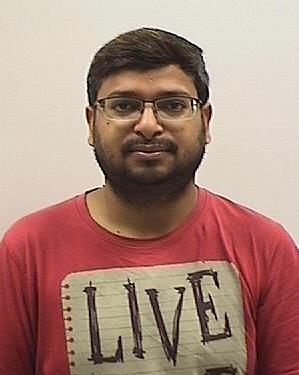Fall 2023 seminar schedule

Tue Nov 28, 12:15pm · NCF 574 — From knots to categorification
In order to create a mathematical knot, take a piece of string or rope, tie a knot in it, and then glue the ends together. The fundamental problem of knot theory is to determine whether two given knots can be rearranged (without cutting) to be exactly alike. I will explain how the Jones polynomial can be used to tell certain knots apart. However, the Jones polynomial is not strong enough to distinguish all knots.
This naturally leads to the idea of enriching the Jones polynomial by means of categorification. Categorification is an active area of research and I will survey some of its results and applications.

Thu Nov 16, 12:15pm · NCF 574 — Irrationality Proofs
I'll begin the talk with the Basel problem and Euler's solution. And then show his general solution for ζ(2n). Then I will talk about ζ(3) and the irrationality proofs of Apery and Beukers. Referring to the paper, "A Proof That Euler Missed", by Alfred van der Poorten, I will explain that he thinks an integral by Margrethe Munthe Hjortnaes, and a series associated to it, played a role in Apery's proof.
I will exhibit the integral and then show a way to generalize it with the goal of using the generalized integral to obtain another irrationality proof for ζ(3).

Tue Nov 7, 12:15pm · NCF 574 — Cauchy's Integral Formula As an Act of Combinatorics
In the field of combinatorics, a generating function is a formal power series whose coefficients correspond with a sequence of numbers. When treated as functions of a complex variable, however, generating functions bridge the gap between enumerative combinatorics and complex analysis. By using Cauchy's integral formula to extract the coefficients of a generating function, problems which we traditionally identify as "combinatorial" can transform into analytic ones.
In this talk, we will survey some classic examples of just how well generating functions and Cauchy's integral formula go together.

Tue Oct 31, 12:15pm · NCF 574 — On discriminant, part 2.
We continue the discussion on discriminant in both commutative and noncommutative setting with more concrete examples. Specifically, we will go over the example of discriminant of the cubic polynomials and verify the Cardano's formula and the example of algebraic number fields. In the noncommutative case, the discriminant of the quantum Weyl algebra will be computed. If time permits, we will discuss some interesting applications of noncommutative discriminant.

Tue Oct 17, 12:15pm · NCF 574 — Nonlocal games, self‑testing, and device‑independent effect witness.
Quantum mechanics has opened a new dimension in computation science and a collaborative effort has begun on building quantum computers and quantum protocols to solve hard computational problems. In this talk, I will provide an overview of nonlocal games and device‑independent self‑testing of quantum devices which are key components in a variety of aspects. As an application, I'll talk about my recent research with Prof. Peter Bierhorst (UNO) in self‑testing quantum measurements in a simple quantum network setting. Students and faculties from computer science and physics as well as mathematics are encouraged to attend. The talk is aimed at a general audience and a first course in linear algebra is sufficient.

Tue Sep 19, 12:15pm · NCF 574 — The discriminant
The notion of discriminant plays an important role in understanding the algebraic structures, geometry and representation theory of the underlining algebra. In this talk we will discuss the definition of discriminant of noncommutative algebra and see how to compute it in concrete examples. We will also be going over some applications of discriminant in solving notoriously difficult problems such as the Jacobian conjecture.

Tue Sep 12, 12:15pm · NCF 574 — PreTeXt
PreTeXt is "an authoring and publishing system for authors of textbooks, research articles, and monographs, especially in STEM disciplines." This system consists in writing a document using a simple markup language that will be easy to learn if you already know (or are learning) LaTeX. Then, from the source code one can choose to produce either a usual LaTeX typeset document, or a professional looking website, that will be available on the internet. There is a large ecosystem already, and some very good quality, open‑source books are done in PreTeXt.